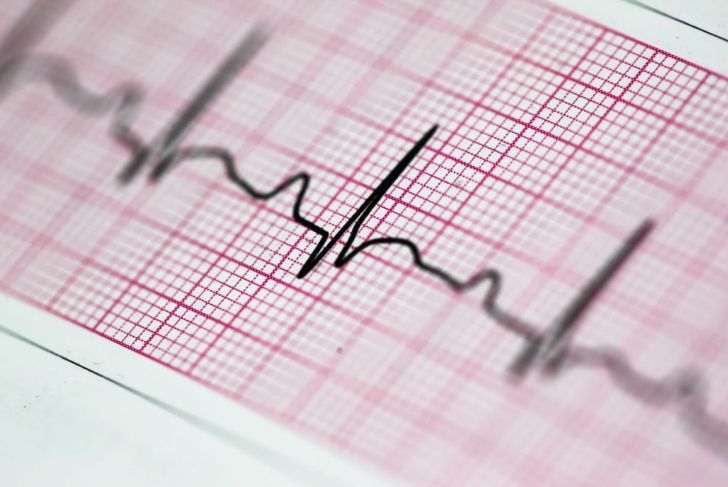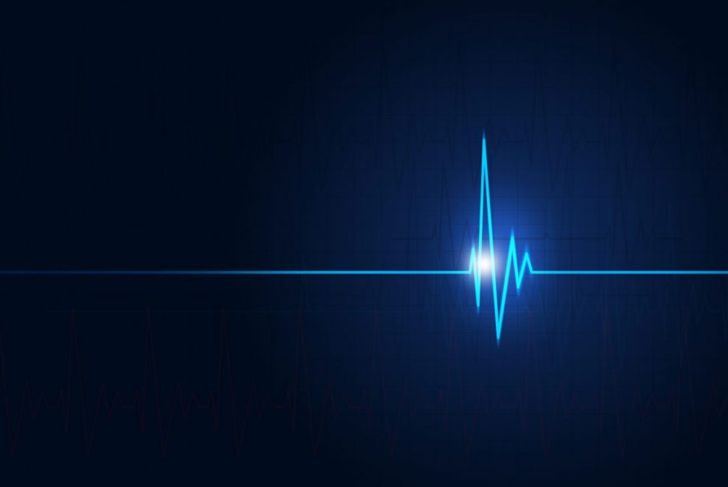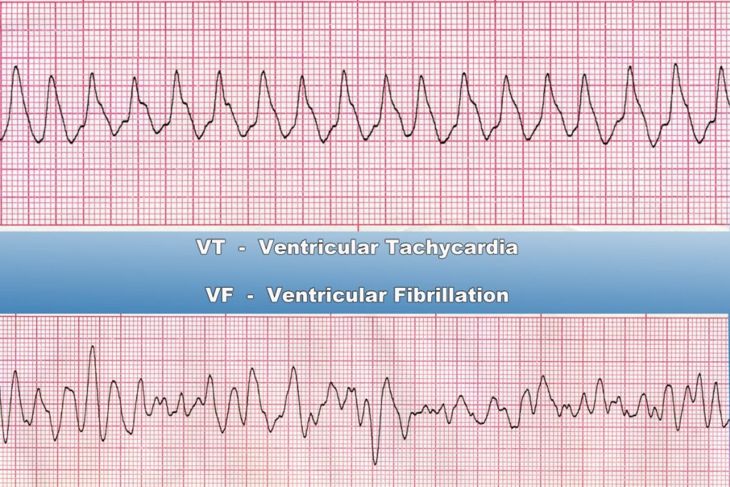Long QT syndrome occurs due to a disturbance in the electrical system of the heart. Normally, ions move in and out of cardiac cells to keep the heart beating regularly. When there is a defect in either the ion channels or the muscle fibers, an irregular heartbeat can develop, which can be life-threatening if left untreated. This syndrome specifically affects the lower chambers of the heart and gets its name from the way it presents on an electrocardiogram. Long QT syndrome is rare — it affects only about one in every 5,000 people in the United States.
What Is Long QT Syndrome?
Long QT syndrome has electrical and muscular components. Normally, electricity flows through the nodes of the heart and triggers the muscle fibers to contract by using ion channels. These ion channels maintain the proper electrical flow by carrying calcium, sodium, and potassium through cardiac cells. When there is a problem with these channels, the flow of electricity is interrupted, which can lead to dangerous ventricular arrhythmias.
Electrocardiogram
A lot of people may not know that they have long QT syndrome until it is spotted on an electrocardiogram (ECG) ordered for another reason. An ECG analyzes heart rhythms and creates a visual representation of the electrical activity of the heart and how it is beating. The heartbeat is represented by five waves: P, Q, R, S, and T. The interval between the Q and T wave is the period when the two lower chambers of the heart are getting ready for the next electric signal to stimulate the next heartbeat. When this interval is longer than it should be, there is an interruption in the ventricular rhythm.
Ventricular Tachycardia
One of the arrhythmias caused by long QT syndrome is ventricular tachycardia (VT). This is a rapid, abnormal heart rate that starts in the lower chambers of the hear, defined as a rate of 100 beats a minute or faster for more than three beats in a row. Sustained VT occurs for longer than 30 seconds, but even a few seconds can be life-threatening. Because the ventricles are moving so fast, they do not have enough time to refill with blood before each contraction, affecting circulation to the entire body.
Ventricular Fibrillation
Long QT syndrome can also cause ventricular fibrillation. This is considered the most serious arrhythmia and is a life-threatening medical emergency resulting from completely disordered electrical activity in the ventricles. Instead of beating normally, they ineffectively quiver, preventing the heart from pumping any blood to the body. Ventricular fibrillation quickly leads to cardiac arrest.
Inherited Long QT Syndrome
Among the 17 or more genes associated with long QT syndrome, research has identified hundreds of mutations. Three genes, in particular, cause more than 75 percent of all cases of long QT syndrome. That said, about 20 percent of those known to have the congenital form of long QT syndrome test negatively for it, while as much as 37 percent who test positively have a normal QT interval. Scientists are currently studying whether there is any link between these genes and infants affected by SIDS.
Acquired Long QT Syndrome
It is possible to acquire long QT syndrome by taking certain medications; more than 100 medications are known to lengthen QT intervals. They come from different classes, including antibiotics, antidepressants, diuretics, antihistamines, and those that regulate arrhythmias. Some people who develop long Qt Syndrome from medication might also have a heart defect that makes them more likely to develop rhythm disturbances.
Risk Factors
People with a high risk of inherited or acquired long QT syndrome have first-degree relatives who have it as well. They may take medications known to cause long QT syndrome or have issues with low magnesium, calcium, or potassium, which can affect the electrical conductivity of the heart.
Symptoms
Common symptoms of long QT syndrome include fainting, seizures, and sudden death. These things most commonly occur during or immediately following exercise, when the person experiences excitement or surprise, and during sleep or when waking sudden. Although some people with long QT syndrome do not experience any symptoms, they may begin to appear as early as the teenage years.
Prevention
For people who know they have an inherited form of long QT syndrome, it is important to be careful about medications, and discuss all prescriptions and non-prescription drugs with a doctor. Illnesses that cause a lot of diarrhea or vomiting can lead to electrolyte loss that can also trigger an episode of long QT syndrome, particularly in those with a family history.
Treatment
Medical practitioners often treat inherited long QT syndrome with simple preventative measures, but surgical options are also available. The goal is to keep the heartbeat controlled to lower the risk of dangerous arrhythmias that can cause sudden death. For acquired long QT syndrome, the doctor will likely recommend the person switch medications. He or she may also prescribe beta-blockers or potassium-sparing diuretics.

 Home
Home Health
Health Diet & Nutrition
Diet & Nutrition Living Well
Living Well More
More




















